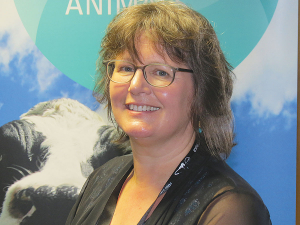Taking a she’ll-be-right attitude to leptospirosis is no longer good enough, says an international expert on leptospirosis, Associate Professor Jackie Benschop, of Massey University.
She told an international conference on epidemiology in Wellington recently that in today’s world it’s not only important to produce food perfectly, it’s equally important to show that the people who produce the food are also cared for properly.
She says safe work strategies are very important and requires linking researchers to communities, doctors and government agencies to ensure a holistic approach to creating safe working environments.
Benschop says her recent research has uncovered a burden of lepto in dairy farmers even though they vaccinate for the disease.
“A strain called Tarassovi appears a little more dominant in dairy farmers than it was in the past. It’s one we need to look hard at and we are also looking at it in cattle.”
Benschop says extra funding her group at Massey University got from the Health Research Council enables her to talk NZ-wide to district health boards and get a sense of what’s important to them. Good surveillance is discovering that people are getting sick but more detailed information is needed.
“The doctors want to be able to tell the patients whether or not they have lepto but [our group] wants to know what strain it is.
“In our new case study in Northland, Te Kuiti and Wairoa we are working closely with doctors there to recruit patients when they are suspected of having the disease. We try to get more samples if the patient consents and go and sample those patients’ animals -- a first for NZ.”
A problem in diagnosing whether a person has leptospirosis is that it often presents like flu. Benschop believes this has led to an underreporting of the disease. To confirm whether a person has lepto requires two blood tests about four weeks apart. But she says often people feel better after a week or two and don’t have the second test.
She says the strains of disease often vary from region to region which makes the task for researchers tricky.
More at risk
The expanding and intensifying dairy industry adds to the lepto challenges, says Jackie Benschop.
“We have larger herd sizes so there is more infection pressure within herds but potentially fewer people at risk.
“But there are more cases amongst dairy farmers and the key question is, how to do we farm intensively and safely while keeping people safe?” she says.
With larger herds come more workers – some of them migrants, especially from the Philippines.
“I wonder about their awareness of infectious diseases and in particular lepto and their ability to get information about that,” she says.
While leptospirosis in NZ has in the past been a disease associated with dairy farms and meat works, Benschop says the disease is now being spread by rodents and anywhere there is food such as PKE, calf feed or even fallen apples in orchards there is chance that lepto can be spread.
“The strains of lepto carried by rodents are different from the strains we see in sheep and cattle but they can make people sick.
“So it’s possible that people working in orcharding or forestry could be exposed to the disease,” she says.

















